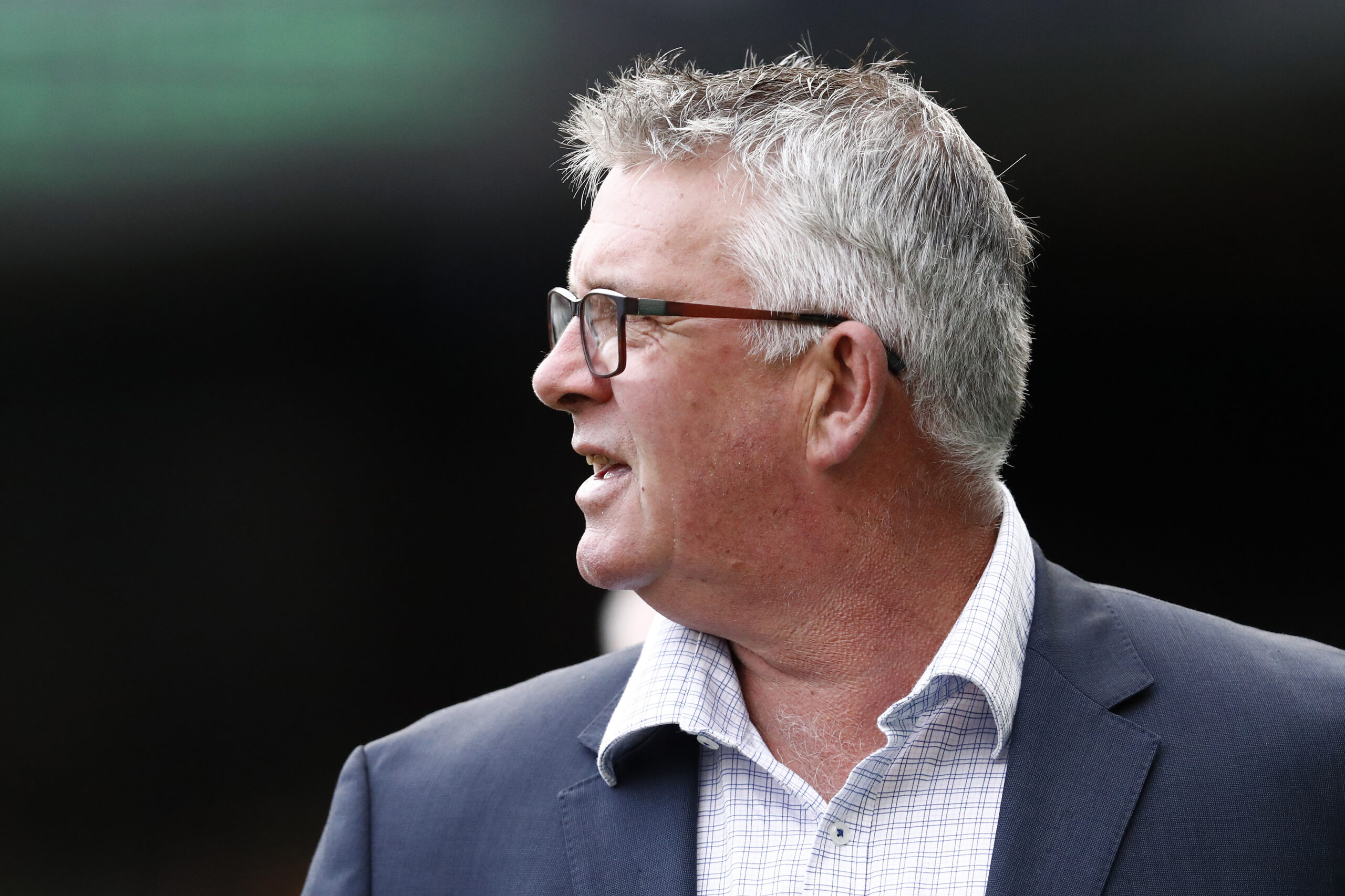When former VFL player and star Australian ODI and Test cricket all-rounder, Simon O'Donnell, was diagnosed with blood cancer in 1987, it came as a shock to him, his family, friends, and teammates.
It was also a stark reminder that blood cancer can impact anyone, regardless of age, fitness, or any other factor.
If an Australian athlete at the peak of his powers can be diagnosed, then it only goes to prove the old adage - cancer doesn't discriminate.
O'Donnell told us his diagnosis came as a “pretty big” shock.
“I was a young fella, and in those days you sort of didn't equate cancer with the younger generation,” O'Donnell said.
“You equated it with the older generation more, but we were about to learn that it doesn't discriminate, and that whether you're young or old, you can be afflicted. It comes, obviously - particularly when you're younger - as a pretty big shock to the system."
Every 28 minutes, someone in Australia is diagnosed with blood cancer, and, for many, a stem cell transplant from a complete stranger is their only hope. Strength to Give, the Australian stem cell donor registry, facilitates and supports individuals to donate stem cells to those in need.
O'Donnell's example goes to show that it could be anyone's life you're saving, in any age bracket, at any stage of life.
Just like in cricket where every player has his or her role to play, everyday Australians have a critical role to play in the treatment of blood cancer and blood disorders, given an exact match must be found between the donor and patient for it to work.
The good news for those looking to help is that just like a donation itself, registering to Strength to Give is quick and easy. A simple cheek swab and basic eligibility verification is all it takes to potentially change someone's life. If you match with a patient, you can then donate stem cells. In most circumstances, it's a very straightforward process with only one in ten donations (typically for children) requiring minor surgery. In nine out of ten, it's a quick outpatient procedure similar to a long plasma or blood donation.
When O'Donnell was first diagnosed with his illness, he was a key part of Australia's national cricket team, and, despite suspecting something may have been seriously wrong with his health, he elected to travel to India for the 1987 Cricket World Cup.
Awareness around blood cancer and blood disorders wasn't what it is today, and, while O'Donnell says it never actively held him back, the period after his diagnosis was highly emotional.
“It was a long time ago now but you remember pretty vividly. I suspected it for probably quite a while but I thought it couldn't be - someone as young and fit [as me],” O'Donnell said.
“The first few weeks were the most difficult, in that you're working through what it is, where it is, and what the treatments are going to be.
“They were highly emotional periods.
“But the reality is that it is here, it is part of what your life is now and you've got to deal with it. So you then set about getting yourself together and putting what you need in place to make sure you can come out the other end as best you can.”
He had discovered a lump on his ribs prior to leaving for India, but forced his way onto the plane. O'Donnell still played a major role in the tournament, including taking 4 wickets for 39 runs in a game against Zimbabwe, as Australia went on to take out their first World Cup title.
Steve Waugh famously wrote that O'Donnell had kept his secret from the squad throughout the tournament, however, he noted the all-rounder had strangely been unable to celebrate with regular gusto at the end of the tournament.
“... But instead of crazy, over-the-top celebrations, we all but collapsed in the dressing room, totally spent after six weeks of intense commitment. Even the team's ringleader, ‘Scuba' O'Donnell could only punch out one verse of ‘his' song, the ol' Paper Lace classic ‘Billy, Don't Be a Hero,' on top of the physio's bench. Only weeks later did we find out that he'd been diagnosed with cancer and had played the entire World Cup suspecting he had a serious problem with one of his ribs but not knowing how potentially life-threatening the ailment was,” the Australian legend wrote.
Today, changing attitudes towards health and wellbeing would likely have ensured O'Donnell's diagnosis was picked up on by his coaches and teammates at an earlier stage, and it's those same changing attitudes in society which have seen Aussies take up the fight to help those in need with stem cell donations.
At just 24 years of age at diagnosis, O'Donnell was declared cancer-free after three months of treatment and would go onto return to the sport, captaining Victoria in the 1988-99 domestic season, and named International Cricketer of the Year in 1991.
A second chance at life with treatment is a hope for all cancer patients, but one not all are able to achieve.
Nearly forty years later, O'Donnell says his life is still impacted every single day.
“I work with it every day. You're reminded of it every day. They say cancer is a death sentence. It's not, it's a life sentence,” O'Donnell said.

“Once you're touched, you're challenged every single day of your life, you're reminded about it. It just becomes part of who you are, and that's that's how personal, and how challenging the journey is.
“It never goes away. But as you dealt with it, then you deal with it. As your life goes on it becomes part of your life.”
O'Donnell, who retired from cricket at the end of 1993, has gone on to have a successful career in media and racehorse breeding, with the now 60-year-old advocating for cancer awareness and treatments.
Blood cancer can affect anyone. While Strength to Give - Australia's stem cell registry - is specifically looking for men aged 18-35 to join the fight against blood cancer, diversity can be the difference between life and death as patients are more likely to find a donor match from a similar genetic background. Right now, only 21% of Australia's registered donors are from an ethnically diverse background.
You too can be a game-changer: Swab A Cheek to Save A Life.







